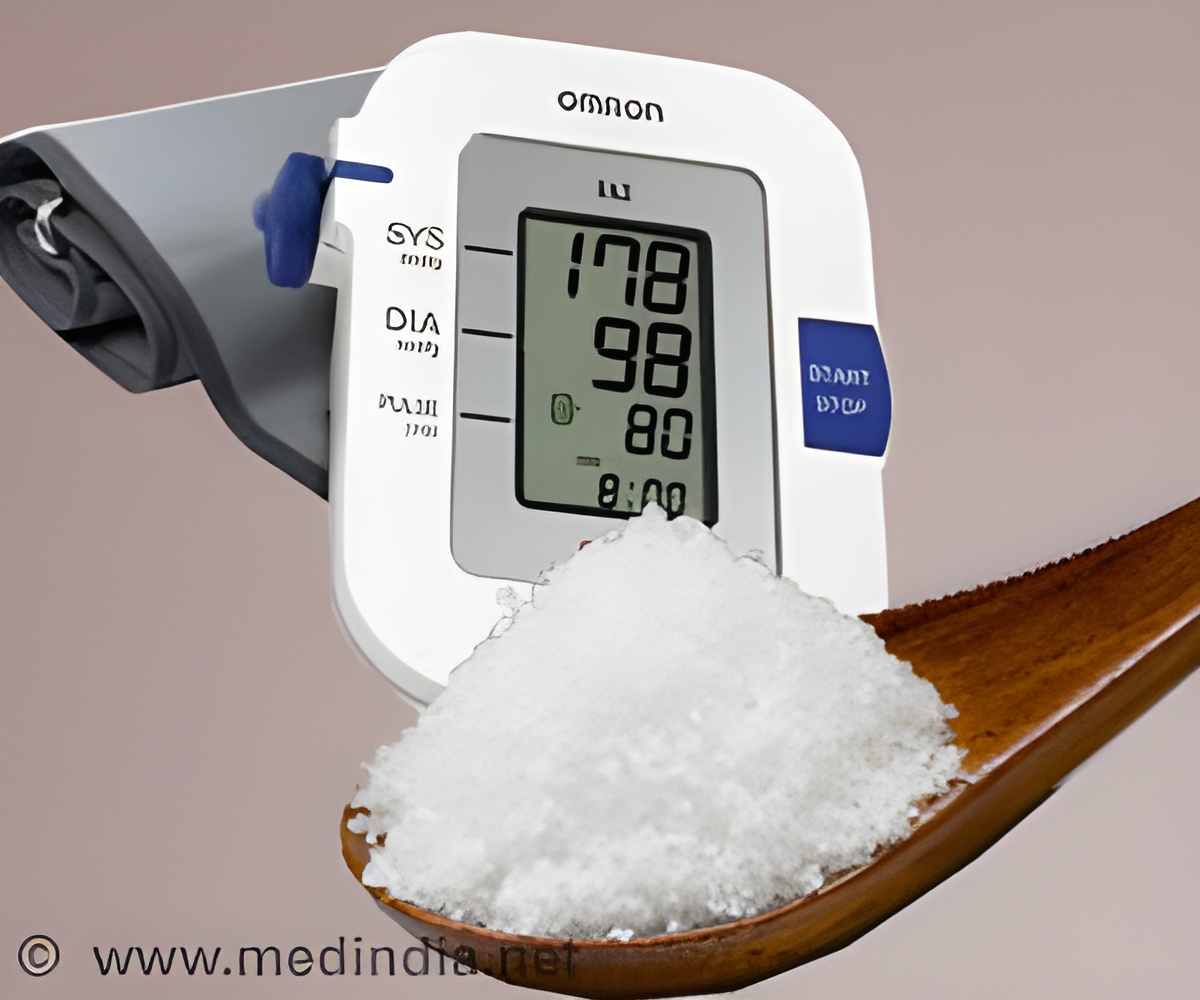A new study suggests that one way of identifying people whose bodies hold on to excess sodium is by collecting a second urine sample.

Using the simple method, researchers looked at 19, 10-19 year-olds seeing a pediatric nephrologist. They found eight were sodium retainers and seven of these were already hypertensive. "Eight kids were holding onto sodium and the amounts ranged anywhere from a few milligrams to hundreds of milligrams over the course of a doctor's visit," Mulloy said.
The findings are featured as a poster presentation at the American Heart Association's High Blood Pressure Research 2013 Scientific Sessions Sept. 11-14 in New Orleans.
About 1 in 3 blacks and 1 in 5 whites retain too much sodium following stress, driving fluid retention and blood pressure levels up, said Dr. Gregory A. Harshfield, a hypertension researcher who directs the Georgia Prevention Center at GRU's Institute of Public and Preventive Health.
Years ago, Harshfield identified this impaired ability in some blacks and wanted to take the next logical step: finding an easy, inexpensive way to identify these individuals. His studies, funded by the National Institutes of Health, have already shown sodium retainers respond well to angiotensin receptor blockers. These drugs, which reduce blood vessel constriction, are widely used to treat hypertension but, ironically, they often are considered ineffective in blacks, Harshfield said. Studies at MCG and elsewhere have shown angiotensin promotes sodium retention directly and it increases aldosterone, another hormone that enhances sodium retention.
For the new study, Mulloy recruited patients as they came into the pediatric nephology clinic at Children's Hospital of Georgia where patients have their blood pressure taken and provide a urine sample as part of their routine visit. Those who agreed to participate had both steps repeated at the conclusion of their visit for comparison sake.
To be effective, they knew the method for identifying retainers had to fit easily into a regular doctor's visit. Knowing patients are sodium retainers will go a long way in helping physicians identify optimal therapies, including prevention strategies, Mulloy said. They are now using the method in adults seeing a general internist.
In a related poster presentation at the AHA meeting, the MCG team also presents early evidence that potassium supplementation could help maintain a healthier sodium level following stress.
While analyzing another cohort of young healthy blacks, Harshfield and Office Associate Deborah L. Stewart noted that sodium retainers in the group still dumped potassium. Normally, potassium and sodium are dumped at the same time, Stewart said. They are writing a grant now to explore whether potassium supplementation is an inexpensive and safe method to improve sodium excretion.
Stewart, who has worked with Harshfield for a year, helping write grants, abstracts and analyze data, is completing her undergraduate degree in biology with plans to move into a role as research assistant. Mulloy has worked with Harshfield for three consecutive summers, beginning when he was an undergraduate at William & Mary.
Source-Eurekalert
 MEDINDIA
MEDINDIA




 Email
Email





